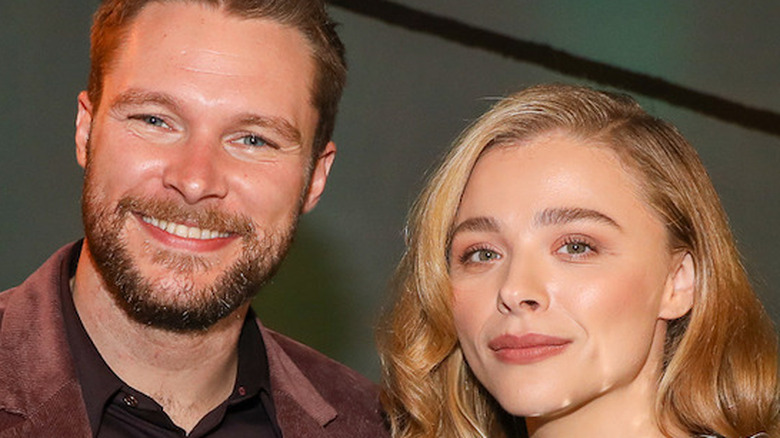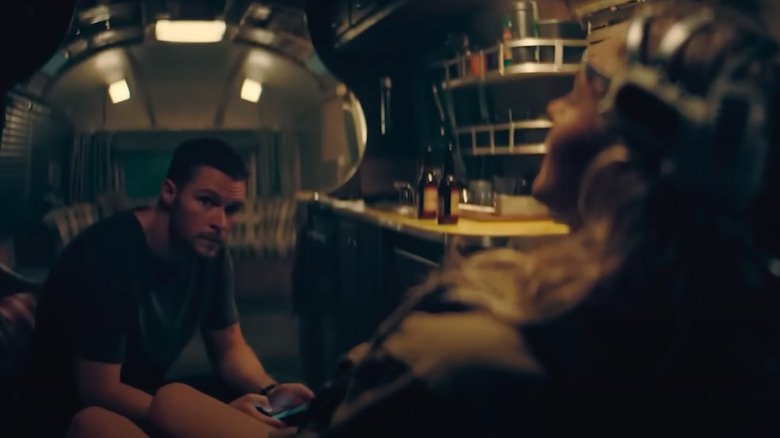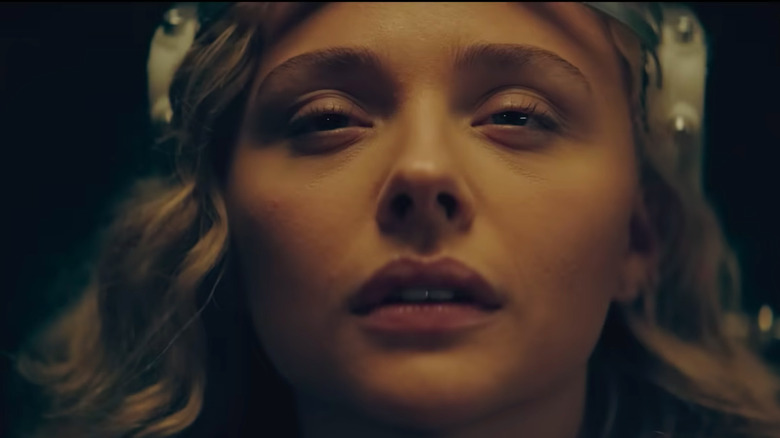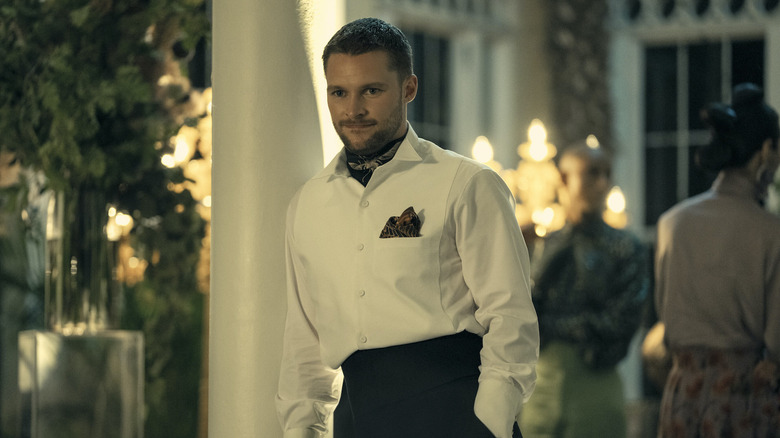Chloë Grace Moretz And Jack Reynor On Playing Sibling Virtual Reality Gamers In The Peripheral - Exclusive Interview
In Prime Video's new series "The Peripheral," Chloë Grace Moretz plays Flynne Fisher, a young woman who lives in the rural American South in 2032. Given her circumstances, most people would overlook Flynne, but when it comes to the world of virtual reality gaming, Flynne is hard to miss. In fact, Flynne is such a talented gamer that when her veteran brother Burton, played by Jack Reynor, needs help with a game, he turns to her. So when a mysterious company sends Burton a futuristic headset and offers to pay him to test it, he enlists Flynne's help once again.
Flynne finds herself in London in 2099 in a game that feels more realistic than anything she's ever experienced before. And soon, she discovers that what she thought was VR is actually real, leaving Flynne to uncover who is responsible for projecting her consciousness into the future and why. At the same time, she and Burton must defend their home and family against forces they don't understand.
"The Peripheral," adapted from William Gibson's book of the same name, is a heady science fiction adventure full of mysterious places and people, but at its core is the loyal sibling relationship between Flynne and Burton, which Moretz and Reynor capture in all its nuance and complexity. In an exclusive interview with Looper, the actors discussed their onscreen and offscreen sibling bond, what Moretz wanted to convey about female gamers, and how Reynor felt about bringing Flynne's VR avatar to life.
An instant connection
You're playing brother and sister in "The Peripheral," and the roots of the story spring from your characters' dynamic and their familiarity with one another. How did you go about forging that sibling bond together?
Chloë Grace Moretz: It sounds cliche, but we were really lucky that we just hit it off. We had our first conversation probably two months before production, and when we first talked on FaceTime, it was like one thing after the other that was completely in line with our childhoods and our dynamics in our life. By the time we got together in person, people were literally like, "You guys are acting like you've known each other your whole lives."
Jack Reynor: Yeah, it was crazy.
Moretz: And we're like, "I think we have known each other our whole lives in a weird way and maybe in a past life." He really does feel like one of my real brothers, and I love him a lot.
Reynor: It was funny — I don't think we even talked about the show [on] the first FaceTime that we had.
Moretz: No, we did not. We talked about everything else.
Reynor: It was two or three hours of [talking].
Moretz: Yeah, it was crazy.
Reynor: It was great.
Gaming to 'even the playing field'
Chloë Grace, we learn early in the show that your character is really good at virtual reality games, partially because she thinks a little differently. What did you want to convey about what made this character special?
Moretz: I find it interesting that you gravitated to that because I think that's why female gamers are so good. Our brains work a little differently, and there's facets that we can use that might not be able to be seen so quickly [by male gamers]. That was definitely something that I wanted to show and talk about, the fact that a lot of women do game.
I grew up with four older brothers. They were bigger than me in size. And physically, they could probably overpower me with everything, but the one thing that I knew I could always best them at was gaming. It was a way that I could even the playing field.
That's something that gives Flynne the edge. She's learned to keep her cool in real life and to rely on her mind and be able to navigate difficult situations. It was something that I wanted to convey. It's interesting — you're the first person to say that today, so that's cool.
Playing an avatar in the world of VR
Jack, at one point in the pilot, you are more or less playing Flynne's avatar. You're playing her in the VR world. How did you approach that performance to differentiate it from when you were playing Burton?
Reynor: That was one of the things that I was so excited about in the show. It was a great opportunity to do something unique and diverse. When we went into it, I rang Chloë and I said, "I got to do this sequence where it's you inside my body, so let's have a chat about it, and you can inform how I'm going to do this." That's such a nice exercise with a co-star who you trust because they're going to give you notes before you even go and do the thing. And you go, "Okay, I'm going to take my co-star's direction and try and execute it the way they envision it."
That was really fun to give that up and allow somebody else to have some authorship over your role. I actually really, really enjoyed that experience, and I kept checking in with the director on the day as we were doing it and saying, "Does this feel distinctive enough that you get a sense that it's Flynne in Burton's body here?" I think it came out well. I hope it came out well. You said it came out well, but ...
Moretz: I like it.
Reynor: ... I think you wouldn't tell me if it was bad. [Laughs]
Moretz: I probably wouldn't say anything if I didn't like it.
The first episode of "The Peripheral" will premiere on Prime Video on October 21, with one new episode arriving weekly every Friday through December 9.
This interview has been edited for clarity.



